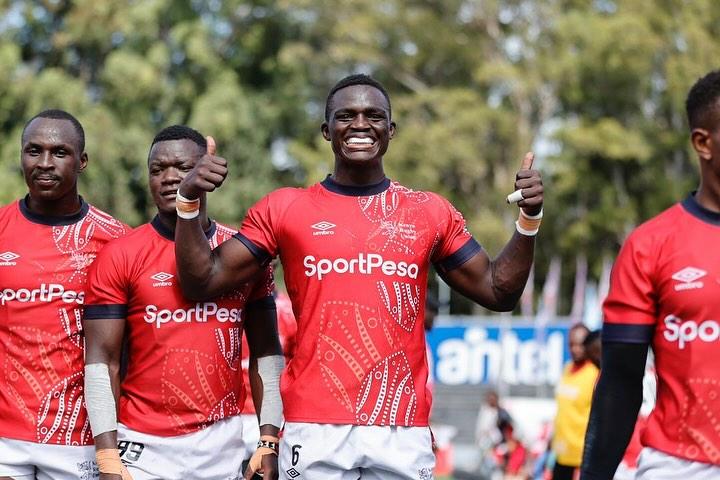Kenya 7s and Kabras Sugar forward Kevin Wekesa has been named among the 15 finalists for the 2025 International Olympic Committee (IOC) Climate Action Awards.
The awards recognise individuals and organisations within the Olympic Movement who are driving tangible action against climate change through innovative sustainability projects. Winners will be unveiled ahead of the Milano Cortina 2026 Winter Olympic Games.
Kevin Wekesa recognition
Wekesa earned the recognition for his initiative, “Play Green,” which promotes eco-conscious behaviour in sport.
Through the project, the Kenya 7s speedster provides aluminium bottles to both the men’s and women’s national rugby teams, helping eliminate around 144 single-use plastic bottles per training session, close to 1,000 bottles saved every week.
Beyond the national teams, Play Green has extended its impact to over 40 schools across Kenya.
The programme integrates mentorship and sustainability workshops, inspiring young people to take climate action. To date, the initiative has seen schoolchildren plant more than 2,300 trees, underscoring Wekesa’s commitment to environmental stewardship through rugby.
EDITOR’S PICKS:
- List of rugby prospects from high school
- Colman Were keen to redefine Kenyan rugby’s physical edge
- Follow Scrummage Africa on Facebook
- Collins Injera inducted into Fiji’s Rugby Town Walk of Fame
The 2025 list also features other athletes making remarkable contributions to sustainability globally. Australian racewalker Rhydian Cowley has been instrumental in developing climate action plans within athletics bodies, while New Zealand hockey player Hugo Inglis, co-founder of High Impact Athletes, has mobilised over 240 athletes to channel more than USD 2 million towards evidence-based climate and health initiatives.
Canadian duo Oliver Scholfield and Gabrielle Smith have also been recognised for their efforts. Scholfield’s Racing to Zero consultancy helps sports federations reduce their environmental footprint, while Smith’s Rising Tides project has removed over 335 kilograms of underwater waste and provided environmental education opportunities for children from low-income backgrounds.



